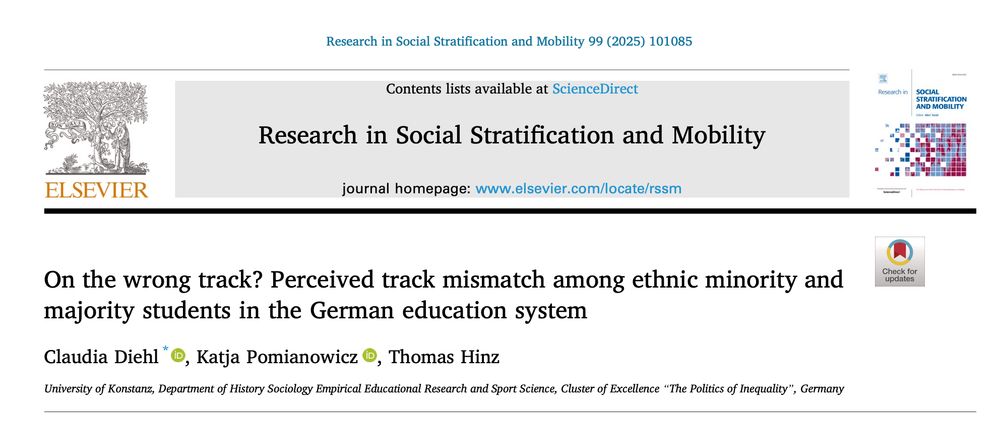Nadja Wehl
@na-wehl.bsky.social
1.6K followers
1K following
130 posts
Postdoc @excinequality.bsky.social
Inequality|Perceptions|Socialization
Before: Substitute Professorship @humboldtuni.bsky.social|Visiting @dspi-oxford.bsky.social|PhD @bagss-bamberg.bsky.social
https://sites.google.com/view/nadjawehl/
Posts
Media
Videos
Starter Packs
Reposted by Nadja Wehl
Reposted by Nadja Wehl
Reposted by Nadja Wehl
Reposted by Nadja Wehl
Reposted by Nadja Wehl
Reposted by Nadja Wehl
Reposted by Nadja Wehl
Reposted by Nadja Wehl
Reposted by Nadja Wehl
Reposted by Nadja Wehl
Reposted by Nadja Wehl
Reposted by Nadja Wehl
Reposted by Nadja Wehl
Reposted by Nadja Wehl






















